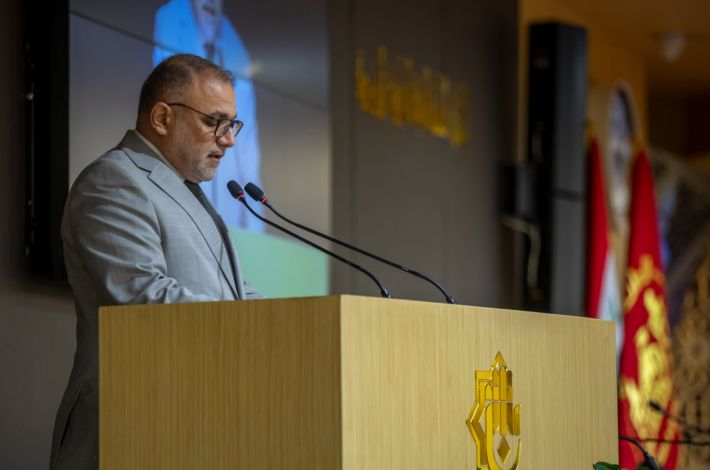The Al-Ameed Scientific and Intellectual Association announced the recommendations of the sixth international scientific conference on Sacred Defense Fatwas.
The Al-Ameed Association is holding the conference as part of the activities of the Ninth Cultural Fatwa of Sacred Defense Festival, under the slogan "The Religious Authority is the Fortress of the Islamic Nation," and titled "Fatwas of Sacred Defense Between the Past and Present: The Two Authorities, His Eminence Sayed al-Sistani and His Eminence Sheikh Ja'far Kashif al-Ghita - Similarities in Goals and Differences in Methods," in collaboration with Al-Kafeel and Al-Ameed Universities, and the College of Jurisprudence at the University of Kufa.
The recommendations were presented by the Secretary of the Association, Dr. Haidar Al-Araji, and they are as follows:
- Continuing to hold the Sacred Defense Fatwas Conference annually, expanding its scientific topics to keep up with contemporary challenges, and opening the field for researchers from various disciplines to actively participate.
- Calling for the holding of scientific workshops and international dialogue seminars to discuss the Fatwa of obligatory defense as a method of ethical resistance against terrorism and extremism, and working to highlight the image of authentic Islam as a religion that calls for human dignity, peaceful coexistence, and national unity.
- Intensifying efforts to integrate the contents of fatwas into educational curricula, whether at the level of the Ministry of Education or the Ministry of Higher Education and Scientific Research, which enhances the values of citizenship and belonging, and presents fatwas as one of the key aspects of modern national consciousness.
- Encouraging universities and research centers to adopt topics related to fatwas and the Popular Mobilization Forces within graduate programs, and allocating academic support for these projects.
- Encouraging media, cultural, and artistic production to document the fatwa and the fighters' heroism, whether through documentaries, novels, theater, or stories, and holding competitions for them to serve the construction of a unifying national narrative.
- Continuing to honor the families of the martyrs and care for the wounded and disabled who responded to the call of the religious authority, and coordinating with government agencies to ensure their rights and needs.
- Proposal to name public facilities and educational institutions after the martyrs of the Fatwa of Jihad, in commemoration of their sacrifices and to connect new generations with their heroism.
- Expanding the dissemination of research publications issued by the conference, and ensuring their reach to academic libraries, media institutions, researchers, and interested parties.
- The conference calls on media networks and institutions supporting the methodology of fatwas and following them, to prepare digital outreach content aimed at the youth, presenting the fatwa of obligatory defense in an interactive format that highlights its spiritual and national dimensions in a contemporary language free from complexity.









